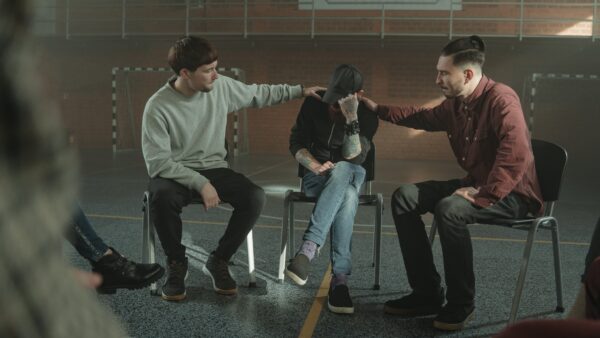Active listening: involves listening with all senses, focusing all attention on the interlocutor, maintaining eye contact, adopting an open body posture, bending to the interlocutor, gently encouraging him to continue speaking.
Assertiveness: the quality of being self-assured and confident without being aggressive and the ability to speak up for oneself in a way that is honest and respectful. Assertiveness is based on balance. It requires being forthright about your wants and needs, while still considering the rights, needs and wants of others. When you’re assertive, you are self-assured and draw power from this to get your point across firmly, fairly and with empathy (Mind Tools, How to Be Assertive).
Case manager: The person that helps identifying appropriate providers and facilities throughout the continuum of services, while ensuring that available resources are being used in a timely and cost-effective manner in order to obtain optimum value for both the client and the reimbursement source (https://cmsa.org/who-we-are/what-is-a-case-manager)
Circle process: A form of conflict resolution that brings together the victims, perpetrators, and all those in the immediate community that are impacted by the conflict. These can be social communities, geographical or familial.
Constructive feedback: our individual, subjective response to someone’s behavior, appearance, etc. and communicated as such. It is a first-person message (I-message) – speaking of oneself – as opposed to You-message – speaking about the other. This type of message – being a non-judgmental one – does not cause conflicts and does not prompt the other person to withdraw.
Directly Observed Treatment: a method developed to better monitor the compliance of patients in the reception of the medication prescribed by a doctor in order to avoid the resistance to the drug used. Practically the patient is receiving his medication in front of a health worker or in this case on front of the peer supporter.
Empowerment: Key elements of empowerment were identified, including access to information, ability to make choices, assertiveness, and self-esteem (Chamberlin & Schene, 1997)
Homeless: Following the European definition of ETHOS (https://www.feantsa.org/en/toolkit/2005/04/01/ethos-typology-on-homelessness-and-housing-exclusion)
Mediation: A form of arbitration that seeks to resolve a dispute. This often occurs between multiple parties who belong to different sides in the conflict.
Multi-agency provision: when professionals and service providers from different fields work together in order to respond to the needs of an individual with complex necessities or multiple disadvantages. For instance, multi-agency provision would be the one in which health services (mental health units), social services (social workers and social educators) and the legal system (probation services) would work as a team to provide coordinated assistance to an ex-offender with mental health symptoms going through the situation of homelessness.
Multiple disadvantages: Occurs when a person faces more than one disadvantage at a time. For instance, a person in a situation of homelessness can, at the same time, be a victim of gender violence, experience mental ill health, substance misuse or other forms of disadvantage.
Mutuality: Mutuality is an emergent property that is the product of co-experiencing of therapeutic attitudinal qualities in the relationship between client and therapist (Cornelius-White et al., 2018).
Outreach based approach: an alternative to traditional approaches to site-based social services Outreach can be defined as contacting or engaging individuals within non-office settings to services or, in other words, going to where people are rather than waiting for them to seek services at a specific place. It is considered an effective strategy for identifying and engaging hidden populations- such as the homeless people- with services.
Person centered social networks: provide advice on care, reviews of physicians and methods and personal experience with a given condition. They are actively used by patients with different conditions for education, medical care advice and psychological comfort. They can receive valuable advice from other patients on self-care and what to expect in the wake of treatment.
Positive Withdrawal: based on a research review it implies regulating social involvement and negotiating public space in order to move towards others only when it feels safe and meaningful. By nurturing personal psychological space, it is possible to develop a broad sense of self, better understand own interests, develop own spirituality and so on.
Punitive Justice: A formation of justice that seeks to punish perpetrators for their crimes, with the punishment being equivalent to the crime they have committed.
Recovery: explore the internal strengths of a person so to support a life with or without the symptoms of an identified unpleasant situation or disorder. Each person has its own recovery mechanism acknowledging what works for them and what does not. Understanding that this process is not linear and pitfalls are part of it, is essential to recovery.
Resilience: ability to handle changes and stressful situations
Restorative justice: An approach to justice that seeks not to attribute blame or punish the perpetrator of harm, but rather to allow the victim and perpetrator to be part of a healing process where a course of action is drawn in order to allow the victim and the community to move forward.
Self-awareness: ability to identify stressors and triggers timely so to handle accordingly. Able to identify limits for the shake of each one in the relationship.
Self-determination: Self-determination is an individual’s right to determine their own fate, including courses of action, treatments and supports. Ability to respect the peer’s choices to recovery is an essential component of the process.
Tri-morbidity: a co-occurrence of a psychiatric condition, physical ill health, and substance abuse problem, characteristic to individuals who are chronically homeless.






